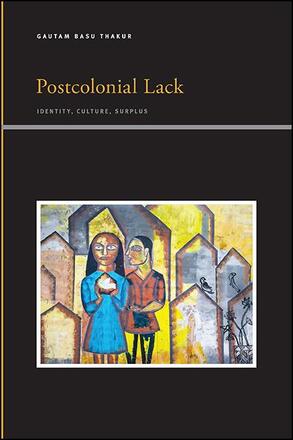
Postcolonial Lack
Identity, Culture, Surplus
Alternative formats available from:
Examines representations of surplus enjoyment in postcolonial literature and film to focus on self-other relations rather than difference.
Description
Postcolonial Lack reconvenes dialogue between Lacanian psychoanalysis and postcolonial theory in order to expand the range of cultural analyses of the former and make the latter theoretically relevant to the demands of contemporary narratives of othering, exclusion, and cultural appropriation. Seeking to resolve the mutual suspicion between the disciplines, Gautam Basu Thakur draws out the connections existing between Lacan's teachings on subjectivity and otherness and writings of postcolonial and decolonial theorists such as Gayatri Spivak, Frantz Fanon, and Homi Bhabha. By developing new readings of the marginalized other as radical impasse and pushing the envelope on neoliberal identity politics, the book moves postcolonial studies away from the perennial topic of identity and difference and into examining the form and function of the other as excess—surplus and/or lack—in colonial and postcolonial literature, film, and social discourse. Looking at writings by Mahasweta Devi, Amitav Ghosh, Leila Aboulela, Narayan Gangopadhyay, Katherine Boo, and films by Gillo Pontecorvo , Clint Eastwood, Ryan Coogler (Black Panther), and Tony Gatlif, Basu Thakur highlights a new set of ethical and political considerations emerging as a direct result of this shift and stakes a fundamental rethinking of postcoloniality through what he calls the "politics of ontological discordance. "
Gautam Basu Thakur is Associate Professor of English at Boise State University. He is the author of Postcolonial Theory and Avatar and coeditor (with Jonathan Michael Dickstein) of Lacan and the Nonhuman.
Reviews
"…accessible and enlightening. " — CHOICE
"This book not only covers well the theoretical range of postcolonial and psychoanalytic arguments and debates, but successfully integrates theory and contemporary literature/popular culture—no small feat! This is a highly compelling and original book. " — Ilan Kapoor, author of Celebrity Humanitarianism: The Ideology of Global Charity